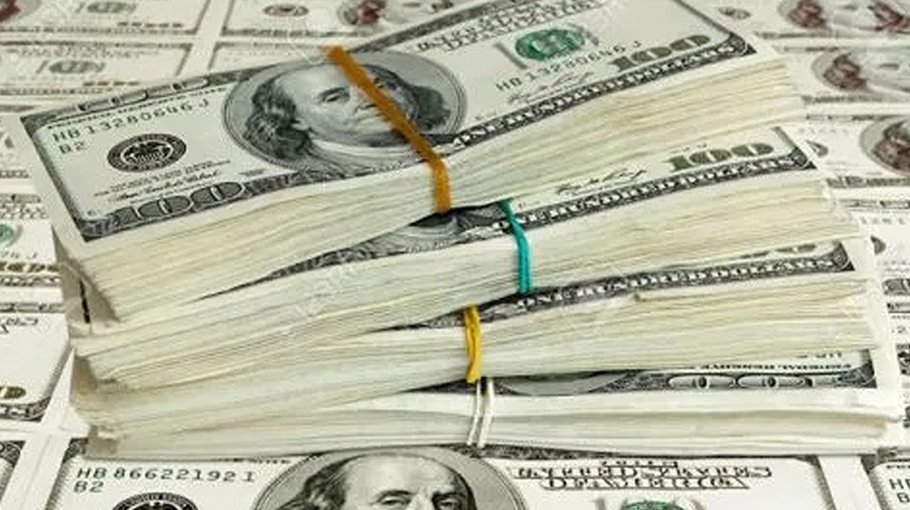Dollar crisis disrupts payments
‘Six cos owe BPC $27.30 crore’

The govenment is unable to pay the price of imported fuel due to the dollar crisis.
According to the rules, the dues have to be paid within 30 days of the release of oil. But many companies are unable to pay their dues even after 60 days. As a result, fuel imports are also decreasing. Currently, 6 companies owe 273 million dollars to Bangladesh Petroleum Corporation (BPC). The two companies owe 170 million dollars. A ship carrying diesel is stuck in the deep sea due to non-payment. The owner of the oil company said that the oil cannot be redeemed without payment. BPC is struggling to settle the fuel debt.
Meanwhile, the news agency Reuters recently published a report based on one of the two letters sent by Bangladesh Petroleum Corporation (BPC). It is said that six international companies will get 300 million dollars for fuel oil from Bangladesh. Due to non-payment of dues, it has threatened to reduce oil shipments to Bangladesh as well as not to send oil cargo.Last year in the summer, the power crisis became extreme in Bangladesh due to lack of fuel. It affected various industries including export-oriented garments.
The letter from BPC said that due to foreign exchange crisis, there is delay in payment of fuel price. According to Reuters news, BPC has requested the government to allow the country's commercial banks to pay India's debt in rupees.
In a letter sent to the Ministry of Energy on May 9, BPC said, "Commercial banks are not able to pay the import costs on time due to the shortage of foreign currency in the country's market and also because the central bank is unable to meet the demand for dollars."
Earlier, in another letter sent last April, the BPC said, "If fuel is not imported as per the schedule for May, there may be a disruption in the country's supply, as well as a dangerous reduction in fuel reserves."
On February 24, 2022, when Russia attacked Ukraine, the price of fuel oil exceeded $127 per barrel. As fuel prices increase, ship fares increase. Along with this, the price of other products increases. Due to lack of supply of dollars according to the demand to meet the cost of imports, its prices also increase. This increases the cost of imports uncontrollably. To handle the situation, Bangladesh Bank releases dollars from the reserve in the market. This reduces the reserve. It is decreasing every month. Currently, the reserve has decreased to 3 thousand 118 million dollars. Net reserves are like 2 thousand 5 billion dollars.
Meanwhile, the news of Reuters also said, 'Bangladesh Bank has allocated 5 billion dollars to BPC and 2 billion dollars to Petrobangla for LNG import in the current financial year to meet import expenses. Besides, commercial banks have also been given 3 billion dollars to open loans.
According to the related sources, except for jet fuel, the reserves of other fuels are decreasing rapidly. At present there is 20 to 25 days of octane reserves. Petrol storage is 16 to 18 days. Diesel has a stock of 30 to 35 days. BPC calls this stock as normal. Opening of LC and disruption of oil discharge will increase risk to oil reserves.
According to sources, BPC imports five lakh tonnes of refined oil and one lakh tonnes of crude oil every month. From July to April of the current fiscal, BPC opened LCs worth $7.64 billion for fuel oil imports, which is about 3 percent higher than the same period last fiscal. Fuel oil worth $7.8 billion was imported during the current fiscal year, which is 16 percent more than the same period of the previous fiscal year. Despite the rise in fuel oil prices, the increase in import costs has been relatively low. As a result, fuel oil imports have decreased quantitatively.
It is known that the six companies from which Bangladesh is buying oil are Unipec Singapore Pte Ltd, Vitol Asia Pte Ltd, Emirates National Oil Company (ENOC), Indian Oil Corporation (IOC), PetroChina Company Ltd and Indonesia's BSP, a commercial partner of China's state-owned company Sinopec. BPC has offered to pay the dues of the Indian company in that country's currency. But the central bank thinks that it is necessary to discuss first whether the oil exporting company will take payment in rupees. The central bank does not have enough rupees to make payments in rupees. Because Bangladesh's exports to India are low. Remittances also come less. Most of what comes is in dollars.
According to BPC's May 9 letter, this year India's Numaligarh refinery will have to pay 4 million 11 million dollars to BPC; IOC will have to pay 147.2 million dollars for diesel and jet fuel. In this situation, BPC has requested the government to allow state-owned commercial banks to pay Indian companies in rupees. Meanwhile, the state-owned Bangladesh Power Development Board (BPDB) has not been paying bills worth $1.5 billion to private power generation companies for several months citing shortage of dollars.
Faisal Khan, president of Bangladesh Independent Power Producers Association, an organization of private sector power producers, told Reuters, "Many local power producers are going bankrupt because of this delay; If this is not remedied, the power supply may be disrupted.
It is known that the central bank has now reduced the sale of dollars from the reserve. As a result, the banks are also unable to pay the dues of fuel oil import. However, oil import LC is being opened. Meanwhile, along with fuel oil, gas and coal also have to be imported. It also costs extra dollars.



